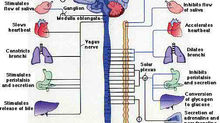You, the world, and I
- tomjlynam

- Dec 3, 2014
- 2 min read
Analysis. Something of great benefit to human beings allowing us to break down the environment around us into its component parts, build complicated machines, influence environmental systems. But what of its drawbacks? Fundamentally analysis is showing how one object differs from another, through this process of contrasting we find out how one component is different from another, whether that be through aesthetic or function. In doing so, from the perspective of the human ego, we are continually engaging in a process in which the external world is perceived in terms of its difference not only in reference to other objects in the external world, but also in reference to ourselves leading us to a disconnect. This disconnect is a lonely place; the idea that everything in that chaotic world out there is foreign, different, something to be controlled and through analysis be brought under our control.
If we think of our existence, what is it? It seems obvious when we stop to think that we are what our senses allow us to be. If we removed our senses, what would we be? A blank darkness, without reference. If we believe this to be true, then by extension the stimulus provided by the external world, which is generated by our mind and its senses, is actually in a very fundamental way, us. So when the sky fills the whole of our vision or the roar of a wave fills our ears, this stimuli in this moment is producing our continual and momentary existence. This is contrary to the conclusions tended to be drawn from the practice of analysis which moves us away from the reality of the world being us. If we can realise this premise of everything we perceive being our existence, the chaotic and foreign view of the external world falls down and we can begin to move away from manipulation and control and dischord and toward a true acknowledgement of awareness and enjoy the inherent existential benefits this brings.









Comments